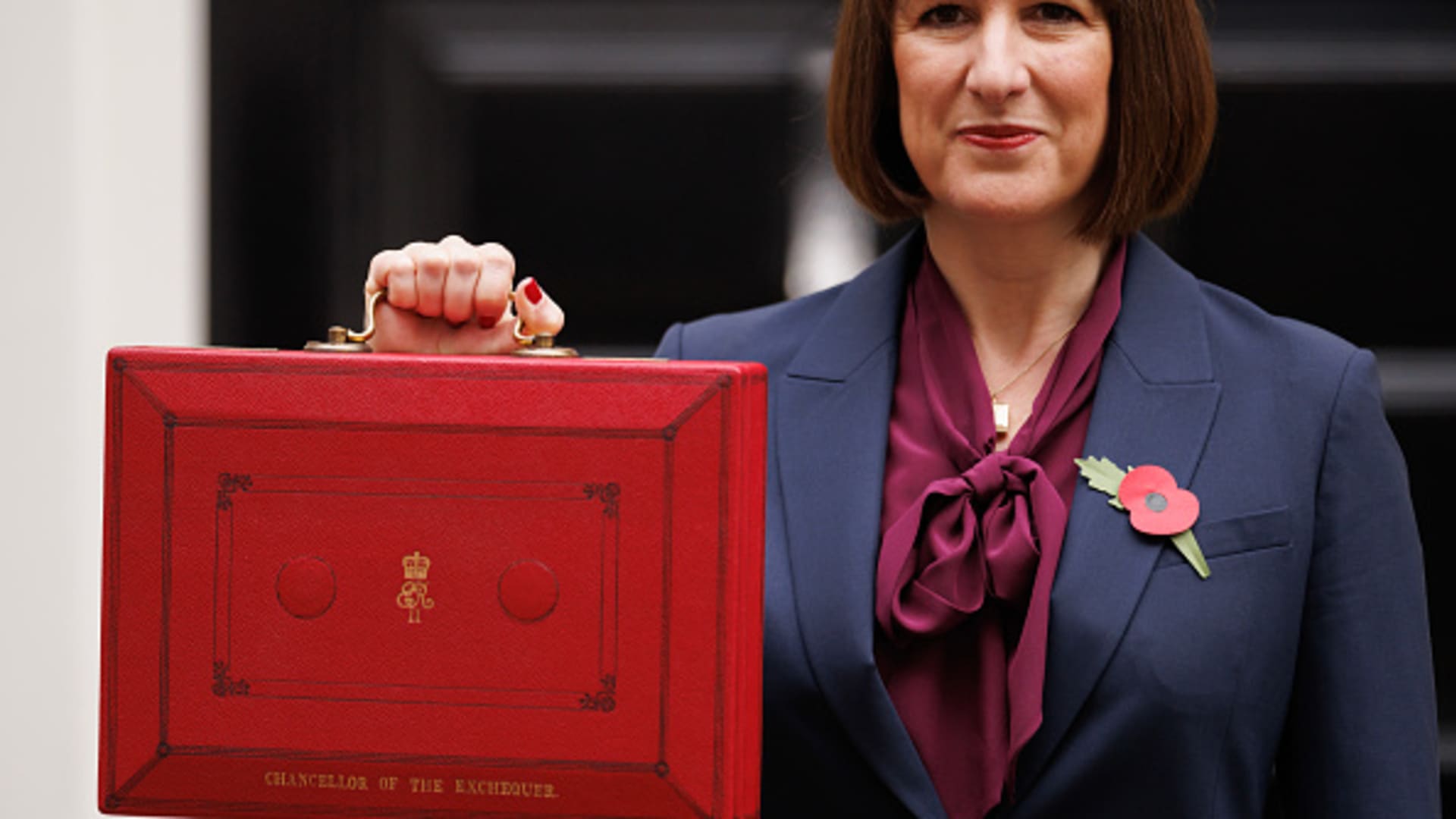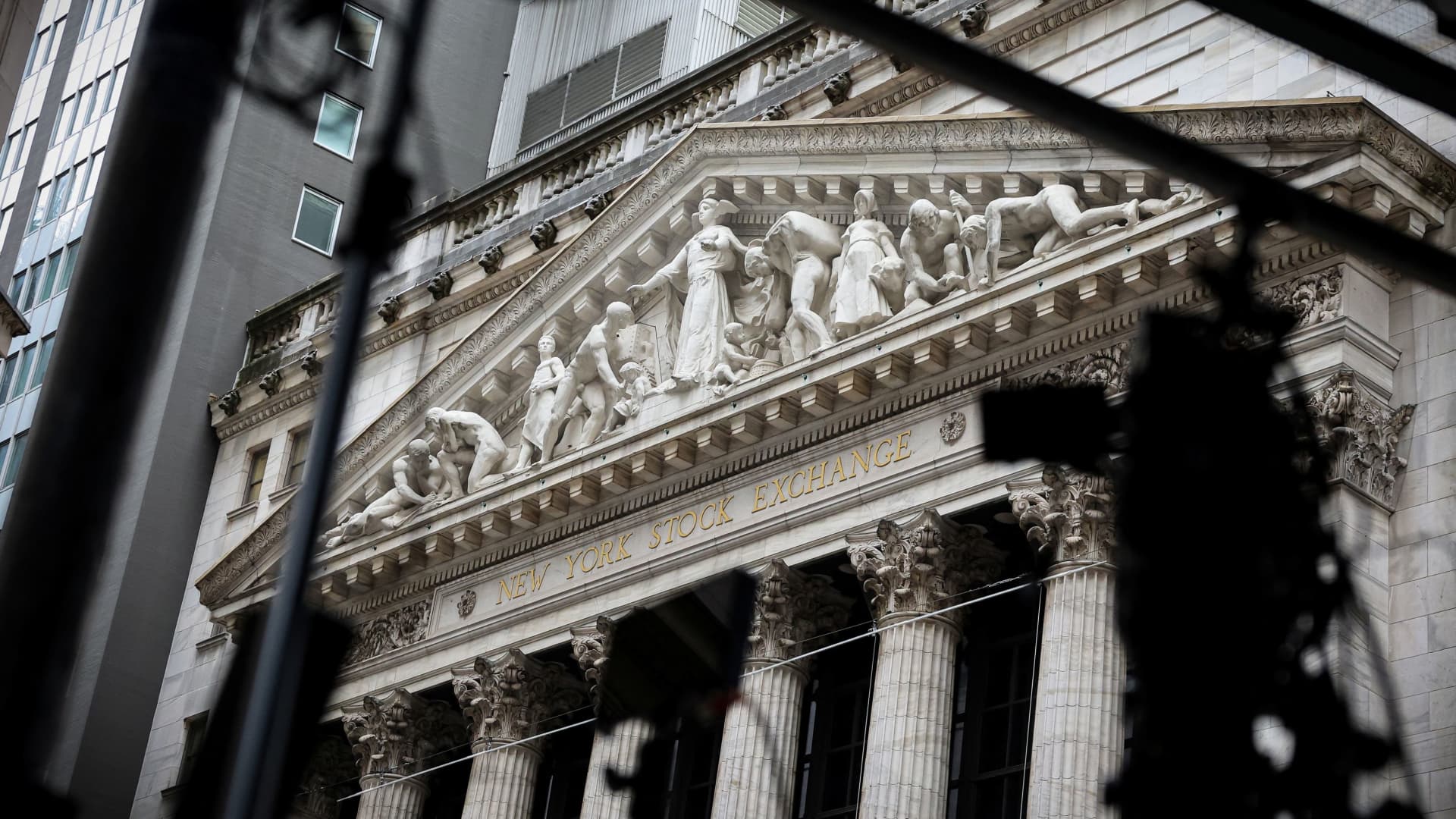Chancellor Rachel Reeves poses with the red box outside number 11 Downing Street on October 30, 2024 in London, England. This is the first Budget presented by the new Labour government and Chancellor of the Exchequer, Rachel Reeves.
Dan Kitwood | Getty Images News | Getty Images
The U.K. Treasury on Wednesday revealed Finance Minister Rachel Reeves will deliver the nation’s Autumn Budget on Nov. 26 amid heightened pressure to resolve a fiscal conundrum over spending, taxation and borrowing.
The budget will address an economy that’s “not working well enough for working people,” Reeves said Wednesday in comments released by the Treasury.
“Bills are high. Getting ahead feels tougher. You put more in, get less out. That has to change,” she added.
The U.K.’s long-term borrowing costs rose this week amid market jitters over the forthcoming budget, and how the British finance minister will meet self-imposed fiscal “rules” to make sure day-to-day spending is funded by tax receipts, rather than borrowing, and to lower U.K. debt over the next few years. Reeves has repeatedly dismissed the possibility of bending her own fiscal rules on borrowing.
She reiterated that stance on Wednesday, stating that the U.K. “must bring inflation and borrowing costs down by keeping a tight grip on day to day spending through our non-negotiable fiscal rule.”
She added it was “only by doing this can we afford to do the things we want to do.”
Economists predict Reeves will have hike taxes in order to meet her rules, and to maintain some fiscal “wiggle” room of around £10 billion in her budget — headroom which has already been eroded by U-turns on welfare spending cuts and rising borrowing costs.
“Barely a day goes by without speculation about new and inventive ways the Chancellor could generate revenue in the Autumn Budget. Our view is that Reeves will need to raise £18-28 billion [$24-37 billion] of revenue mostly via higher taxes,” Ruth Gregory, deputy chief U.K. economist at Capital Economics, said in analysis Tuesday.
“A tax increase that raises a lot of revenue, is politically palatable and improves the economic outlook has long been the holy grail of governments. But that will remain elusive,” Gregory predicted.
Tax rises are one of the few levers left for Reeves after she announced a range of long-term spending plans earlier this year with defense and the National Health Service that main recipients of extra funding and investment.
Efforts to reduce spending in other areas have fallen flat, with a number of Labour Party lawmakers opposing cuts to welfare spending and winter fuel payments for pensioners.
Where the axe will fall when it comes to tax rises is the key question: Reeves has already increased the tax burden on the business sector, leaving workers to face a potential tax hike, come the budget. That would nevertheless break Labour’s manifesto pledges to not raise income tax, national insurance for employees or VAT.
In a corner
Reluctance to cut welfare spending and raise taxes, while promising big-ticket spending on the NHS, defense, infrastructure and education, means that Labour has boxed itself into a corner, Peel Hunt’s Chief Economist Kallum Pickering told CNBC.
“The economics of this is actually fairly straightforward. You could cut major parts of spending, especially on things like welfare, that would reset incentives in things like labor markets. You could deregulate major parts of the economy so that you would have more economic pie to tax. None of those are options that are available for Labour. They’ve constrained their political choices,” he told CNBC’s “Squawk Box Europe” on Wednesday.

“We’re sweating over whether a government with a £3 trillion economy can raise £20 billion in a budget. It’s not because the bond market won’t let you make adjustments. It’s because you’ve prevented yourself from taking the choices that could get you there,” Pickering said.
The bond markets have certainly made their feelings known ahead of the budget, with the yield on 30-year U.K. government bonds, known as gilts, hitting their highest level since 1998 on Tuesday. Bond yields in the U.S. and other major European economies also rose, reflecting wider fiscal worries.
Investors demanding a higher interest rate to hold U.K. debt was seen as a warning shot to the British government that Reeves must stick to her fiscal rules and restore fiscal credibility to the government’s policies — or risk undermining investor confidence in the country’s leadership and economic prospects.











